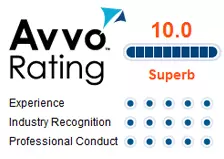Like all learned professions, in the legal profession a client’s confidences and secrets are protected. In fact, any confidence or secret learned during the representation must be held inviolate by the lawyer.[i] The rule is written in mandatory language and states that a lawyer shall not knowingly reveal a confidence or secret.[ii]
Certainly there is excellent public policy support for this rule. For example, as stated in the comments, the lawyer is part of a judicial system charged with upholding the law. One of the lawyer’s functions is to advise clients so that they avoid any violation of the law in the proper exercise of their rights. The observance of the ethical obligation of a lawyer to hold inviolate confidential information of the client not only facilitates the full development of facts essential to proper representation of the client, but also encourages people to seek early legal assistance.
Furthermore, that a fundamental principle in the client-lawyer relationship is that the lawyer maintain confidentiality of information relating to the representation. The client is thereby encouraged to communicate fully and frankly with the lawyer even as to embarrassing or legally damaging subject matter.
Lawyers, and the public, should understand however, that while mandatory, this non-disclosure rule is not absolute. In fact, one may argue that under certain circumstances, a lawyer has an obligation if not a duty to disclose a client’s confidence or secret. For example, the rule indicates that “confidences or secrets may be revealed when permitted or required by these rules, or when required by law or by court order.”[iii] Notice however, that this exception is permissive “may” rather than mandatory “shall.” So, while a lawyer shall not reveal secrets or confidences, a lawyer may reveal them if required by other rules of professional conduct.
One rule that may require such disclosure is the rule pertaining to candor to the court. This rule requires both that a lawyer must not make a false statement of material fact and must not fail to disclose a material fact if when disclosure is necessary to avoid assisting a criminal or fraudulent act.[iv]
There are at least two ways that these rules can and do come into play in a Michigan drunk driving defense lawyer’s practice. The first is when a judge asks counsel outright during the taking of the plea whether or not he or she knows of any prior convictions. The second is when a client fails to disclose prior convictions to a probation officer. If this happens, and the probation officer fails to find the priors, the criminal history reported to the “tribunal” will be incomplete. It is entirely possible then that priors known to counsel will not be included in a probation report on which the Judge is relying in passing sentence. In either of these situations does the DUI defense lawyer have an obligation to report his client’s prior convictions to the court thereby exposing his client to a harsher sentence?
It is important to point out that it may not be entirely clear that a prior offense is actually a secret or confidence. According to the rule, “confidence” refers to information protected by the client-lawyer privilege under applicable law, and “secret” refers to other information gained in the professional relationship that the client has requested be held inviolate or the disclosure of which would be embarrassing or would be likely to be detrimental to the client.[v]
In the context of any criminal matter, and certainly in the context of a drunk driving case, the “disclosure” of a prior offense is likely to be detrimental to the client because it will be used by the judge to enhance the sentence, making it more punitive or onerous. However, is a prior conviction that was not sealed, taken under advisement or is not otherwise not part of the public record a confidence or secret? The safest conclusion is that prior convictions do fall within the definition of confidence or secret.
So again, the question is whether or not a Michigan drunk driving defense lawyer must reveal his client’s prior convictions to the court when doing so will be almost certainly detrimental to the client. The issue, stated differently, is really this; how does a lawyer’s ethical duty of candor to the court segue with his/her ethical duty to be a zealous advocate, to protect client confidences and not disclose those confidences that may be harmful. Also, is a prior “public record” a confidence? Finally, what is utility of a public policy that favors an attorney not asking his client about priors for fear that he/she may be forced to disclose them at a later date?
Like so many other questions and issues in law, the answer is “it depends.” Michigan has essentially adopted the position of the American Bar Association, which is as follows:
Where it is clear that the court is not relying on defense counsel to corroborate the judge’s mistaken belief that the lawyer’s client has no prior criminal record as a result of a clerical error omitting previous offenses in a certified copy of the client’s driving record received from the state licensing bureau, defense counsel is not ethically obligated to disclose to the court the inaccuracy of the report.
If a judge asks the lawyer if the client has a criminal record, or it is obvious the judge is relying on defense counsel to corroborate the judge’s mistaken belief as to the true facts of the client’s record, then the lawyer’s duty of candor and fairness to the court requires the lawyer to inform the court not to rely on counsel’s personal knowledge as to the client’s record.[vi]
The state of Maryland has come to a nearly identical conclusion when it found that “counsel has a number of ethical responsibilities that must be fulfilled at sentencing. These include a duty of candor to the court and a duty to maintain the attorney-client privilege. These two responsibilities can appear to conflict where the client discloses a prior conviction or probation before judgment that does not appear on the defendant’s driving record or on the driving record proffered to the court by the State. Counsel is under no obligation to disclose information that is unfavorable to his client, but at the same time must take care to ensure that no remark of counsel or the client could be construed as misrepresenting the facts or misleading the court.”[vii]
Likewise, in Michigan, the committee has adopts ABA Formal Opinion 287. Accordingly, “where it is obvious that the Judge is relying on information received directly from the State or statements made by the prosecutor, we do not believe that DR 7-102 requires defense counsel to correct the prosecutor who mistakenly informs the Judge that the client has no previous record or to comment upon the inaccuracy of the report received from the state. However, if the Judge specifically asks the lawyer if the client has a criminal record or it is obvious the Judge is relying in someway on defense counsel to corroborate the Judge’s mistaken belief as to the true facts of the client’s record then in our opinion you cannot stand idly by. The lawyer’s duty of candor and fairness to the court requires him or her to advise the Judge not to rely on counsel’s personal knowledge with respect to the client’s record.”[viii]
Regarding probation reports, if the Judge asks a client about their criminal record and the client is untruthful, DR 7-102(B)(1) requires the lawyer to promptly call upon the client to tell the truth, and if the client refuses to do so, the lawyer must reveal the lie to the Judge.[ix]
That’s what the rules say, but the question posited here is whether or not, in drunk driving cases specifically, a defense attorney ought to have any duty to disclose prior alcohol related convictions and it is my opinion that the answer should be “no.” One of the diagnostic criteria used in the mental health field for determining the type and extent of an alcohol problem is the number of prior drunk driving or alcohol related offenses. As the number of priors increase, so does the probability of there being an alcohol abuse or dependence problem. It is important for the DUI accused to be forthright and honest regarding priors so that their attorneys and their treatment providers have complete information relative to any possible alcohol issue. Consequently, repeat drunk drivers should be at complete liberty to reveal priors to their professionals without fear that this information will later be used against them at sentencing.
The lawyer’s duties in the defense of drinking drivers are somewhat unique in that many offenders have alcohol abuse problems. Although a lawyer has no outright professionally duty to see that his client obtains treatment, the rules of professional conduct should not stand in the way. In fact it would be better public policy if Michigan’s rules of professional conduct facilitated this effort. For these reasons there should be a DUI exception to the rule of candor to the tribunal that seems to require disclosure of prior alcohol related offenses. In this regard at least, Michigan should adopt the Kansas rule that “[i]t is not defense counsel’s place to admit to his or her client’s prior offenses.”[x]
[i] MRPE 1.6 Confidentiality of Information.
[ii] MRPE 1.6(b)1.
[iii] MRPE 1.6(c)2.
[iv] MPRE 3.3 Candor Toward the Tribunal.
[v] MRPE 1.6
[vi] Michigan Bar Ethics Opinion CI-833
[vii]Attorney Grievance Commission v. Rohrback, 323 Md. 79, 591 A.2d 488 (1991).
[viii] Michigan Bar Ethics Opinion CI-833
[ix] Id.
[x]State v. Hankins, 19 Kan. App. 2d 1036, 1047, 880 P.2d 271 (1994).
Related posts:
- Are Some of Michigan’s Drunk Driving Defense Lawyers Unethical?
- Padilla Advisory Required on DUI Cases
- What is My Worst Case Senario for Drunk Driving?
- Lies Recently Told by Michigan DUI Lawyers
- Find Michigan DUI Lawyer | Fraudulent Breath Tests Lead to As Many as 4000 Wrongful Drunk Driving Convictions



